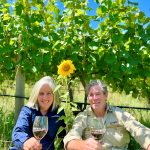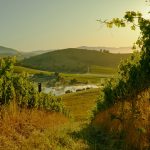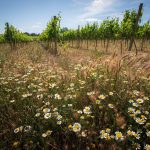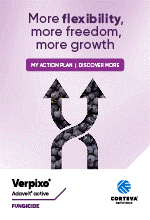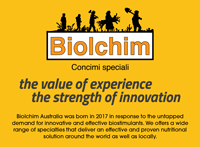Richard & Malcolm Leask. Photo Meaghan Coles
McLaren Vale-based winery Hither & Yon announced its wine business and vineyards achieved certification from Sustainable Winegrowing Australia (SWA) in April.
The certification across both the business and vineyards is a first for the McLaren Vale region and bolsters Hither & Yon’s regenerative agriculture model of farming.
The model has influenced significant changes to production and packaging in the last twelve months and achieved a further 20 per cent reduction in carbon emissions.
“For Hither & Yon, being certified sustainable expresses the tenet of being winegrowers who care for our environment and community first,” said Hither & Yon director Malcolm Leask.
“It is a trust mark for our model of farming and proudly demonstrates our commitment to best practice across the six focus areas of the SWA program.
Regenerative agriculture is a farming method which aims to sequester carbon, maintain soil health and bolster biodiversity. It is a nature-based solution to help reach net-zero emissions and restore entire ecosystems.
The introduction of livestock cell grazing and diverse cover-crops is building organic matter for living roots all year round and overall less carbon output.
Hither & Yon’s sustainability and environment officer Kelly Leask credited the SWA Program with driving continuous improvement across the business.
“We believe our sustainability certification helps propel change and continuous improvement across all facets of our business. We are always looking for better ways to combat climate change and lessen our carbon footprint – it’s an important part of our brand DNA,” said Leask.
“Through our SWA certification audit, we learned that the installation of a solar system to offset energy needs of our bore reduced our grid reliance by 57% and overall running costs by 93%.
“It’s inspiring us to continue on this path, make superior wines, and provide a legacy for future generations of the Leask family and our community.”
Hither and Yon Viticulturist and Regenerative Farming industry-leader, Richard Leask, has seen first-hand the impact of conventional farming practices on soil health and grape growing practices, leading him to research and implement sustainable measures including regenerative agriculture methodologies from 2012.
“We stopped herbicide use across all vineyards and started to balance soil nutrition with blended organic compost and multi-species cover-crops, noting the benefits of these changes over time with increased water infiltration during winter leading to decreased irrigation use in spring and early summer,” said Richard.
The team is also devoted to practicing biodiversity management on their land, re-establishing non-productive native corridors across all properties as well as climate change appropriate varietal choice, such as Grenache, Tempranillo and Nero d’Avola as a major focus of their regenerative farming model.
Are you a Daily Wine News subscriber? If not, click here to join our mailing list. It’s free!


